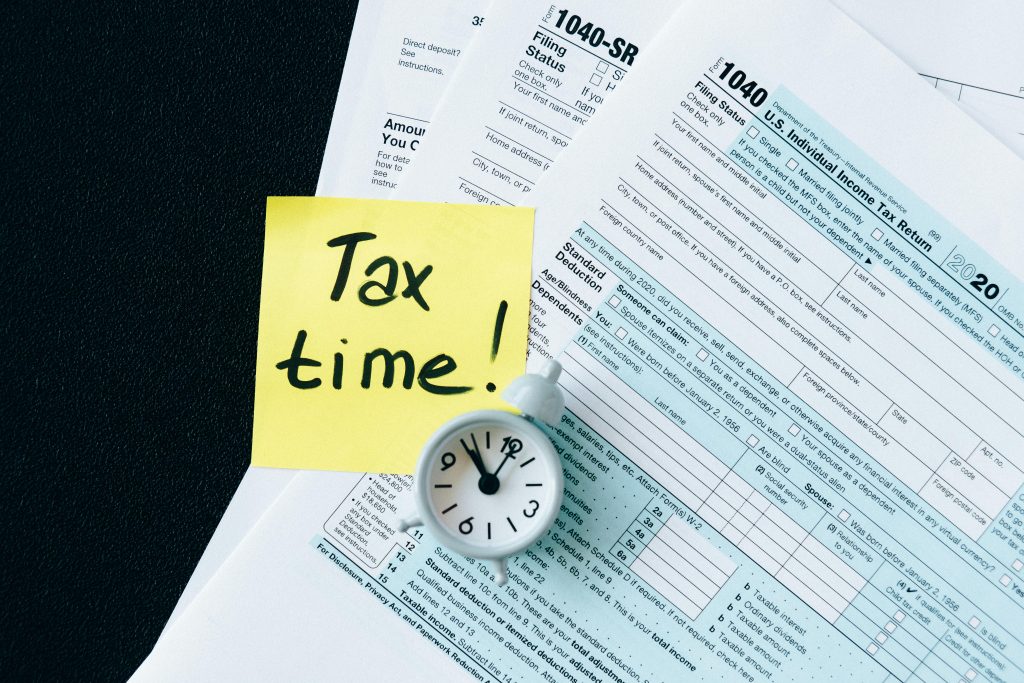Anúncios
With the tax season upon us, understanding important deadlines and processes can save you from unnecessary stress and penalties.

This comprehensive guide will walk you through the critical dates and actions necessary to ensure a smooth filing process.
When Are Taxes Due in 2024?
Mark your calendars because the tax deadline for 2024 is on a specific date you cannot afford to miss. Knowing this date is your first step in avoiding penalties and late fees. In 2024, Tax Day falls on April 15th. This is the day when your federal income tax return must be filed with the IRS. Missing this tax deadline could result in penalties and added interest on any taxes you owe.
Even if you have all your documents organized, waiting until the last minute to file could lead to avoidable errors. If you’re feeling overwhelmed, consider reaching out to a tax professional for guidance on meeting this deadline. Remember, being proactive is the key to a stress-free tax season.
Tax Day 2024 The Final Deadline
Tax Day is more than just a date on the calendar; it represents the culmination of your financial year. Filing your taxes by this deadline is crucial for compliance and financial planning. Failure to file on time could result in late fees and interest on taxes owed, which can be financially straining. Timely filing also positions you to receive potential refunds faster.
It’s important to note that filing your returns punctually not only ensures you avoid penalties but also demonstrates fiscal responsibility. For business owners, this is particularly important, as late filings can affect future dealings with lenders and investors.
When Is the Last Day to File Taxes 2024?
The last day to file taxes in 2024 is April 15th. However, if you find yourself unable to meet this date, you risk penalties for late filing. These penalties can accumulate quickly, turning what might have been a manageable tax bill into a financial burden.
To mitigate this risk, prepare your documents early and consider using tax software or consulting with a tax professional. This approach will help ensure that everything is in order well before the deadline. Missing the last day to file taxes can also delay your refund, so timely action is essential.
Early Filing and Why It Matters
Filing your taxes early comes with a suite of benefits. Not only does it reduce the stress of looming deadlines, but it also gets you ahead of any potential issues. Early filers often receive their refunds quicker than those who procrastinate. Additionally, starting early gives you ample time to address any discrepancies or additional information requests from the IRS.
Getting an early start also allows you more time to explore tax credits and deductions for which you may qualify. This maximizes your return and ensures that you aren’t leaving money on the table. A proactive approach to filing can also provide peace of mind, knowing that you are fully prepared.
Understanding the Tax Extension Process
There are times when life gets in the way of meeting tax deadlines. In such cases, filing for a tax extension can be a lifesaver. While extensions give you extra time to file, they do not extend the time to pay any taxes owed. This section will guide you through the tax extension process and how to take advantage of it.
Filing a tax extension is a straightforward process that grants you an additional six months to file your return. This means your new deadline will be October 15th, 2024. It’s an excellent option for those who need more time to gather their financial documents or await additional tax forms.
How to File a Tax Extension for 2024
Filing for a tax extension is relatively simple. First, you’ll need to complete IRS Form 4868, the Application for Automatic Extension of Time to File U.S. Individual Income Tax Return. You can submit this form electronically through the IRS website or via paper mail.
Be sure to follow the form instructions carefully, as incomplete or inaccurate forms might not grant you the extension. Remember, while the extension gives you more time to file, any taxes owed should still be paid by April 15th to avoid interest and penalties.
Tax Extension Deadline 2024
If you’ve filed for an extension, the new deadline to submit your completed tax return is October 15th, 2024. Missing this extended deadline can result in significant penalties, so it’s crucial to plan accordingly. Use the extra time wisely to ensure your tax return is complete and accurate.
Keep in mind that if you expect to owe taxes, you should estimate your liabilities and make payments by the original April deadline. This will help minimize any interest or penalties that could accrue during the extension period. Proper planning during this extension period is key.
Pros and Cons of Filing a Tax Extension
There are several advantages to filing a tax extension, including having more time to prepare your documents and ensuring accuracy in your filing. This is particularly helpful if you have complicated finances or are waiting on additional paperwork.
However, there are also downsides to consider. Extensions do not postpone your tax payment deadline, and if you owe taxes, interest will accrue from April 15th. Additionally, extending your filing date could delay your refund. Weigh these pros and cons carefully to decide if an extension is right for you.
Key Dates to Remember for Tax Season 2024
To stay on top of your taxes, it’s important to keep a calendar of key dates throughout the tax season. Knowing these dates in advance can help you plan and avoid last-minute stress. This section outlines some of the most important dates to consider.
From the start of the filing season to the last day for estimated quarterly tax payments, each date carries its significance. Being aware of these dates ensures that you can manage your time effectively and submit all necessary documents on time.
When Can You File Taxes 2024?
The IRS typically begins accepting tax returns in late January. This means you can start filing your 2024 taxes as soon as the filing season opens. Early preparation is beneficial, giving you ample time to review your documents and ensure everything is accurate.
Filing early can also provide peace of mind, knowing you have one less task on your to-do list. Starting early is especially critical if you anticipate receiving a refund, as early filers often receive their refunds faster than those who wait until the last minute.
Quarterly Estimated Tax Payment Deadlines
If you’re self-employed or have significant non-wage income, keeping track of quarterly estimated tax payment deadlines is crucial. In 2024, these deadlines fall on April 15th, June 17th, September 16th, and January 15th, 2025. Meeting these deadlines helps avoid penalties and manage cash flow effectively.
Paying quarterly estimated taxes ensures that you remain compliant with IRS regulations and prevents a large tax bill at year-end. Being disciplined with these payments can save you from financial headaches down the road.
Last-Minute Filing Tips for Tax Day 2024
If you find yourself nearing the tax deadline with unfinished paperwork, don’t panic. There are still steps you can take to ensure a successful filing. Gathering all necessary documents and double-checking your entries for accuracy is a great start.
Consider using tax software to streamline the process and catch potential errors. This technology can help you identify deductions and credits you might have overlooked. Remember, filing on time is better than filing perfectly—don’t procrastinate!
Common Mistakes to Avoid on Tax Day 2024
Filing taxes can be complex and mistakes happen, but common errors can lead to unnecessary penalties. Being aware of these pitfalls can help you avoid them. From misreporting income to overlooking tax credits, each mistake can impact your return.
Understanding these common missteps is the first step in preventing them. Take the time to review your return carefully before submission to ensure that everything is accurate and complete.
Filing Late or Missing the Deadline
One of the most costly mistakes is filing late or missing the deadline altogether. This oversight can lead to penalties and fees that add up quickly. To avoid this, start preparing your taxes early and set reminders for important deadlines.
If you anticipate needing more time, don’t hesitate to file for an extension. This proactive approach will help you stay on top of your obligations and avoid unnecessary costs. Remember, late payments can also incur interest charges, so paying on time is crucial.
Misreporting Income or Deductions
Accurate reporting of your income and deductions is essential in avoiding audits and penalties. Misreporting can occur if you’re not careful in gathering and inputting your financial information. Take the time to verify each entry and consult with a tax professional if you’re unsure.
Use tools like tax software to help identify any discrepancies. These platforms often come with built-in checks to catch potential errors, giving you confidence in your submission. Accuracy is key to a successful tax filing.
Not Taking Advantage of Tax Credits
Tax credits can significantly reduce your tax liability, but many taxpayers overlook them. Familiarize yourself with the credits for which you may be eligible, such as the Earned Income Tax Credit or Child Tax Credit. These credits directly reduce the amount of tax you owe.
Taking full advantage of these credits can lead to substantial savings. Be sure to research available credits thoroughly and include all relevant information on your return. This can make a meaningful impact on your financial situation.
Staying Prepared for Tax Day 2024
In conclusion, staying organized and informed is your best strategy for navigating Tax Day 2024. By understanding key dates, considering tax extension options, and avoiding common pitfalls, you can ensure a smooth tax season.
Proactive planning and attention to detail will help you maximize your return and minimize stress. If you’re seeking further assistance, consider consulting with a tax professional to guide you through the process. Staying prepared and informed is the key to a successful tax season.


